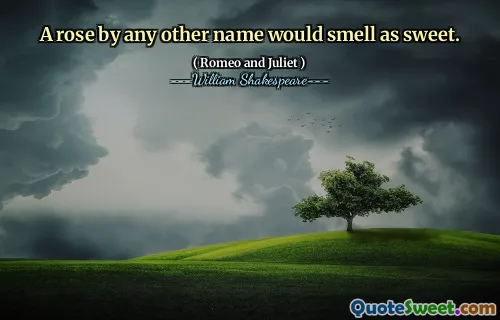But, soft! what light through yonder window breaks? It is the east, and Juliet is the sun. Arise, fair sun, and kill the envious moon, Who is already sick and pale with grief, That thou, her maid, art far more fair than she. Be not her maid, since she is envious; Her vestal livery is but sick and green And none but fools do wear it; cast it off.It is my lady, O, it is my love!Oh, that she knew she were!
In this famous soliloquy from "Romeo and Juliet," Romeo expresses his deep admiration for Juliet as he watches her appear at her window. He compares her to the sun, stating that her beauty outshines the moon, which he personifies as envious and pale in comparison. Romeo's words convey a sense of longing and appreciation for Juliet, highlighting her radiant beauty and distinctiveness. He wishes she were aware of how much he loves her, showcasing the intensity of their budding romance.
Romeo's passionate declaration reveals the themes of love and desire that permeate the play. He urges Juliet to reject the constraints of traditional femininity represented by the moon, suggesting that such expectations are inadequate. The imagery he uses illustrates the light and warmth of Juliet's presence in his life, and his wish for her to embrace her own beauty uncovers the profound connection he feels. This moment encapsulates the essence of youthful love, unburdened by societal judgments.


